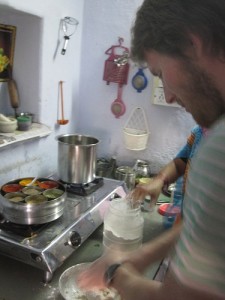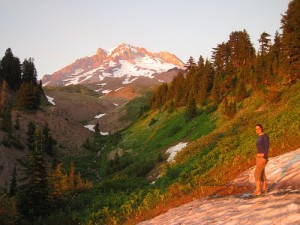As reported by various news sources, the Congress of Ecuador is currently debating a draft amendment to the special law that applies in the Galapagos. The Galapagos was placed on the UNESCO in 2007 endangered heritage list due to the increased tourism immigration and the introduction of alien species, then removed in 2010. It has been worried that this removal will cause increased tourism without proper focus in conservation if the government of Ecuador and Institutions do not respond.
Galápagos is currently inhabited by 25,000 people, the majority support themselves through tourism. Many conservation groups believe that 20,000 is the proper population that the Galapagos delicate habitat can support, depite the fact that only 3% of the population is used by man. In 2011, an estimated 170,000 people visited the Galapagos. I was among the 170,000. Unlike the majority of these 170,000 tourists, I was making a second voyage. Every day when I am in the Galapagos, I spend a long time pondering the effects of tourism on this special space as I work with locals to help develop their volunteer organization.
I came to the Galapagos barely knowing anything about them. In my mind they were a place that was exotic, where Charles Darwin made his theories and, as I had read in a book while traveling, a place that has a constant fight with tourism. Because of this book, although I knew nothing about the climate and very little about what animals I should have on my list to see, I knew I wanted to help preserve this place for future generations. It turns out because I read this book I knew more than most people do. I spent my first month volunteering to conserve the Island. Often the tasks seemed menial and it was easy to loose sight of what we were aiming to do. The locals we worked with had a small grasp of English and it was hard for them to explain the importance of what we were doing. I knew the importance because I first read the book. I knew the importance of the task we were doing even when we were attaching a satellite dish to a bamboo pole so someone had TV, because this task was showing the people in the community that not all foreigners are an open wallet, that some of us care about the Galapagos, it was spending money locally at farms to encourage people to follow the laws and preserve the enchanted islands and not choose to kill whales or turtles or another unique creature because countries were illegally paying money for these goods.
I often am sad as I keep my constant obsession to read all news related to Galapagos, which is flooded by tour operators, and a constant chime even in the backpacking websites, that to really see the Galapagos, you need to take a multi-day tour. I would argue that to really see the Galapagos you need to spend the night in the highlands and if you need to take a multi-day tour all your doing is checking a sight off your bucket list and Galápagos doesn’t need you as a tourist.
Galápagos new regulations look to prohibit the award of a package of tourism operation to a single person and establish a 5 year ban on the construction or adaptation of tourist accomodations, while a record is made of operators. Both of these are good things. Galapagos needs to understand the current tour operators. It needs to be clearer what are licensed operators in Galapagos and this information should be more publically available. Often the information that tourist find is actually 3rd parties that are reselling and not direct tours. Too the lull will hopefully allow locals to innovate and think of different ways to cap into the tourists dollars. Galapagos is cluttered with restaurants and gift shops and to some extent hotels with the exact same offerings. There are plenty of opportunities to create different goods.
If I could make the regulations they would go even further, they would mirror more similarly the regulations that are in place in Bhutan, but I don’t think the key is asking people to spend over a certain daily amount, its attracting the people who really want to understand the Galapagos, not those who happen to have enough money to receive another checkbox. I would propose all boat tours must be accompanied with 2 nights learning about the threats to the Galapagos and conservation efforts. Galapagos puts great effort to minimize impact of tourists. Most energy is clean. I would allow tourists to choose between visiting these facilities or actively conserving the Galapagos. I think adding this would dissuade people with limited vacation time, force people to spend money locally and give more jobs to locals, as well as encourage people to donate more money to help promote these causes.
 Maybe its idealistic, but for me Galapagos is an idealistic place. I think overall the government has done a great job. The guides are vigilent about ensuring tourists respect the laws in the Galapagos. Locals are educated about how unique a place they were blessed to be born in. Most people I met have the idea of having less kids than their parents because they understand that the population can’t be sustained. The majority of these 25,000 people, even if they do work in the tourist industry, aren’t getting rich off the 170,000 tourists even though most spend over $5000 on their voyage. Something has to be done and cutting back the tourist alone will result in the local population looking for other means to support themselves, which may involve illegal activities. If you cut back on the number of tourists but help ensure that the tourists are truly invested in the Galapagos, you’ll distribute wealth more evenly, which will in turn help the locals be encouraged to participate in activities that promote a more sustainable future.
Maybe its idealistic, but for me Galapagos is an idealistic place. I think overall the government has done a great job. The guides are vigilent about ensuring tourists respect the laws in the Galapagos. Locals are educated about how unique a place they were blessed to be born in. Most people I met have the idea of having less kids than their parents because they understand that the population can’t be sustained. The majority of these 25,000 people, even if they do work in the tourist industry, aren’t getting rich off the 170,000 tourists even though most spend over $5000 on their voyage. Something has to be done and cutting back the tourist alone will result in the local population looking for other means to support themselves, which may involve illegal activities. If you cut back on the number of tourists but help ensure that the tourists are truly invested in the Galapagos, you’ll distribute wealth more evenly, which will in turn help the locals be encouraged to participate in activities that promote a more sustainable future.
What are your thoughts? Have you ever wanted to visit the Galapagos, have you pondered the impact of your voyage?






